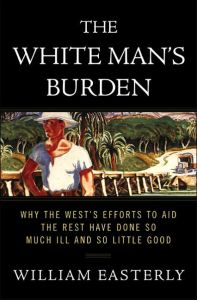
The White Man's Burden
Why the West's Efforts to Aid the Rest Have Done So Much Ill and So Little Good
Used by arrangement with Penguin Group (USA)
www.penguin.com (1-800-253-6476)
ISBN: 9781594200373
Pages: 448
Read or listen offline
Recommendation
At the World Economic Forum in 2007, author William Easterly gave the audience some distressing news: The $2.3 trillion in aid sent to Africa since the 1950s had done nothing to increase Africa's GDP. It had been largely a waste of money. Bill Gates, who was sitting next to Easterly that day, admonished the author for focusing on narrowly economic benchmarks: "You don't eat GDP," Gates said petulantly. Easterly's riposte came a few days later in The Wall Street Journal, where he chided the world's richest college dropout for missing "the economics class that listed the components of GDP, such as food." Readers who enjoy such debates will love this acerbic, clearheaded book. Easterly, a former World Bank economist who is fervently committed to global prosperity, demolishes the myths that prop up ineffective efforts to help developing nations. He points his wrecking-ball at photo-op celebrities and utopian economists who feel that big plans and big aid budgets will eventually build big economies (the last 50 years of contrary evidence notwithstanding). Ah, you say, at least they are trying to do something good, while many others simply watch the impoverished world's agony in dismay. Instead, the author argues, only alternative, pinpointed aid tactics can succeed, but only if they use local knowledge and implementation. getAbstract recommends this to anyone interested in economic development and emerging markets, and to lovers of intelligent polemic on issues that matter.
Take-Aways
About the Author
William Easterly is professor of economics at New York University. For 16 years, he was a senior research economist at the World Bank.
















Comment on this summary or Начать обсуждение